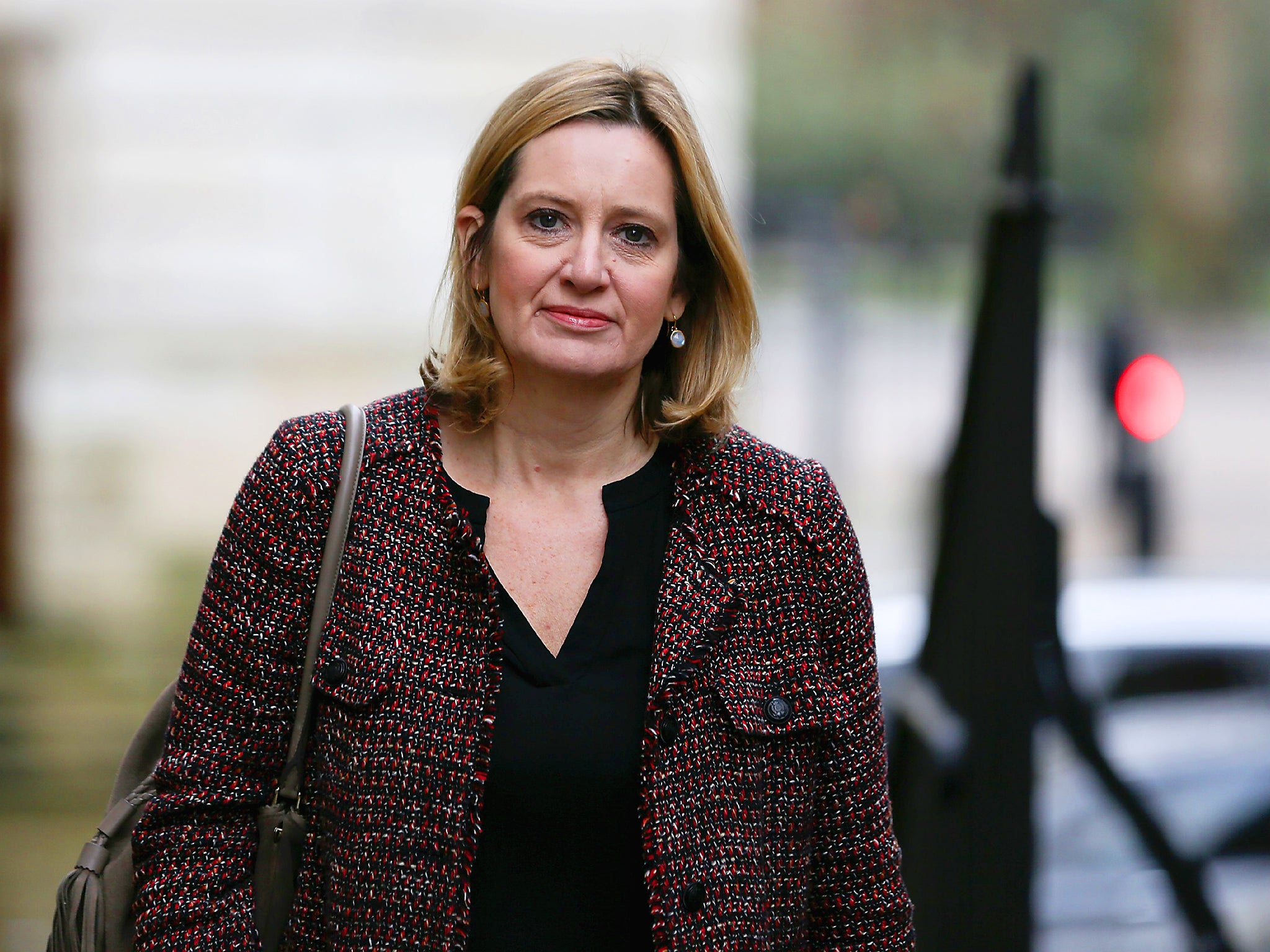Tech firms to set up forum to ‘tackle online terrorist propaganda’ following crunch talks with Amber Rudd
It comes after the Home Secretary said it was ‘completely unacceptable’ that London terror attacker Khalid Masood’s WhatsApp messages were encrypted

Major international technology firms have announced that they will set up a cross-industry forum to tackle online terrorist propaganda following a crunch meeting with the Home Secretary Amber Rudd.
The commitment from Google, Facebook, Microsoft and Twitter, comes after Ms Rudd criticised Facebook’s WhatsApp earlier this week after it emerged Khalid Masood, the terrorist responsible for the London attack, used the messaging service moments before ploughing into pedestrians on Westminster Bridge.
She complained that security agencies have been unable to access the message because of the use of encryption.
Describing the meeting as a “useful discussion”, the Home Secretary added that the conversation focused on the issue of access to terrorist propaganda online and the “very real and evolving threat it poses”.
In a statement, she continued: “We focused on the issue of access to terrorist propaganda online and the very real and evolving threat it poses. I said I wanted to see this tackled head-on and I welcome the commitment from the key players to set up a cross-industry forum that will help to do this.
“In taking forward this work I’d like to see the industry to go further and faster in not only removing online terrorist content but stopping it going up in the first place. I’d also like to see more support for smaller and emerging platforms to do this as well, so they can no longer be seen as an alternative shop floor by those who want to do us harm.”
During the meeting, the Home Secretary also raised the issue of encryption and reiterated there should be no safe space for terrorists online. “I am clear that Government and industry need to work more closely together on this issue so that law enforcement and the intelligence agencies can get access to the data they need to keep us safe,” she added.
WhatsApp messages are protected by end-to-end encryption, which converts them into indecipherable sequences until they reach the recipient’s device. The system is commonly used by communications services to protect users’ privacy.
On Sunday, Ms Rudd told the BBC’s The Andrew Marr Show that it was “completely unacceptable” that Masood’s WhatsApp messages were encrypted, making it difficult for police to read them. “There should be no place for terrorists to hide,” the Home Secretary said.
“We need to make sure that organisations like WhatsApp – and there are plenty of others like that – don’t provide a secret place for terrorists to communicate with each other.”
“On this situation we need to make sure that our intelligence services have the ability to get into situations like encrypted WhatsApp,” Ms Rudd said. The Home Secretary admitted that she used the encrypted messaging service herself.
On Wednesday, Craig Mackey, the acting deputy commissioner of the Metropolitan Police Service, said the London terror attack was “a wake-up call” for technology companies, “in terms of trying to understand what it means to put your own house in order”.
Speaking to the London Assembly’s police and crime committee, Mr Mackey said: “If you are going to have an ethical statement and talk about operating in an ethical way, it actually has to mean something. That is the sort of thing that obviously politicians and others will push now.
“We work hard with the industry to highlight the challenges of these very secure applications.
“It’s a challenge when you are dealing with companies that are global by their very nature because they don’t always operate under the same legal framework as us.”
In a statement after the meeting with Ms Rudd, the internet giants said they believe companies, academics and government “all have an interest and responsibility to respond to the danger of terrorist propaganda online – and as an industry we are committed to doing more”.
Join our commenting forum
Join thought-provoking conversations, follow other Independent readers and see their replies
Comments